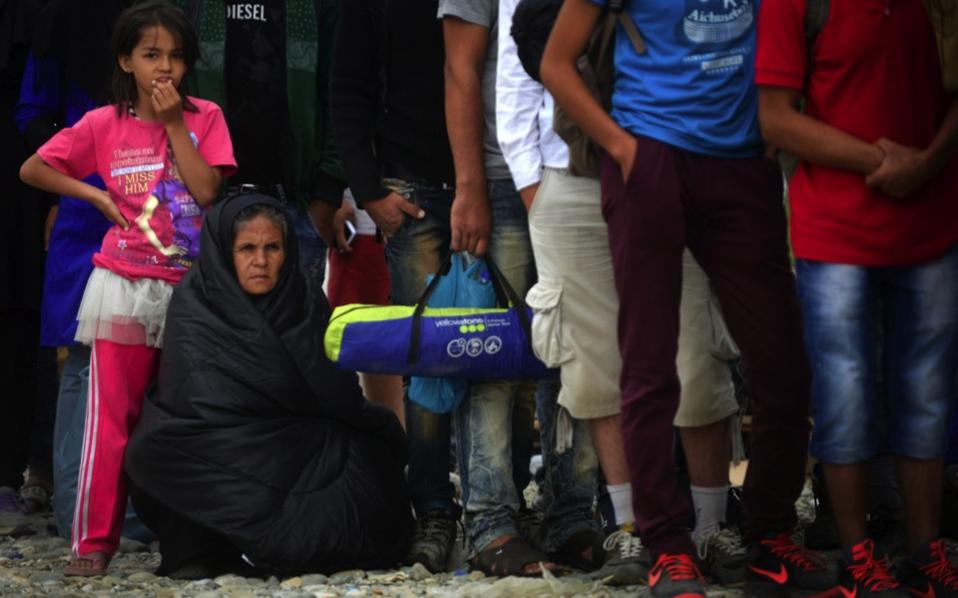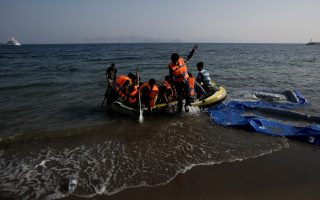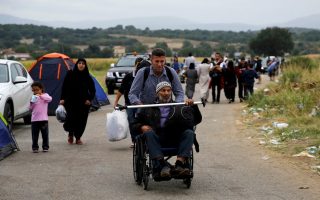German top refugee official quits as migrants inundate Croatia

The top German official responsible for the government’s open-door refugee policy stepped down amid criticism that his office exacerbated the region’s growing crisis, with Croatia becoming the latest flash point as migrants flooded into the country after being blocked by Hungary.
The German Interior Ministry announced Thursday that the head of the office for migration and refugees, Manfred Schmidt, was stepping down after five years for personal reasons. Faced with an intractable logistical burden, Schmidt’s agency last month announced it would stop sending Syrians back to the European Union member states where they were first registered. That decision, which contravened the EU’s rules on asylum seekers, stirred confusion and criticism from some member states.
The departure comes as German Chancellor Angela Merkel has faced criticism in recent days by some in her own coalition for her handling of the crisis as the country struggles to keep up with the influx, which some in the government now say may top 1 million this year. Eastern European countries argue that Germany’s welcoming stance has only encouraged more to come. The chancellor has continually defended her decision to allow in those coming from war-torn regions.
“We are an attractive country for refugees and that is a good thing,” Merkel said in a speech in Frankfurt on Thursday. “We want to help those in need of protection,” she said, while reiterating that authorities will “send back” those who come to Germany for economic reasons.
Croatia has become the latest crisis hot spot, with the government on Thursday wavering in its commitment to accept a growing influx of migrants after 5,600 refugees poured into the country in one day. Prime Minister Zoran Milanovic said Croatia will help refugees “as long as we can.” Officials in Tovarnik, a Croatian border town of 1,500 residents where refugees have been entering the country, said a humanitarian disaster was unfolding.
"This is a siege, a disaster our government didn’t foresee,” Tovarnik Mayor Ruza Veselcic told reporters. “We are overrun.”
Croatia on Wednesday began allowing in people from Serbia who had been trying to enter the EU through Hungary, which closed its southern frontier and fired tear gas and water cannons at migrants trying to break through a barrier on the border. Police said they used force to repel the crowd after refugees threw rocks and other projectiles.
EU bickering
European leaders have been at odds for weeks over how to deal with the region’s biggest refugee crisis since World War II, with Hungarian Prime Minister Viktor Orban fortifying his border to keep refugees out and Merkel saying Europe has a moral responsibility to help. Orban has built a razor-wire fence along the border with Serbia and announced plans to extend the barrier to part of the frontier with Romania.
EU President Donald Tusk will announce Thursday whether the 28-member bloc will hold an emergency leaders summit requested by Merkel and Austrian Chancellor Werner Faymann. Tusk will likely arrange an informal dinner next week, short of an official summit, Spiegel Online reported.
The European Parliament signed off Thursday on a plan to relocate 120,000 refugees entering the EU through Greece, Hungary and Italy. The proposal still needs the approval of national governments. EU interior ministers are set to gather again next Tuesday to try and reach agreement on the matter after failing to do so earlier this week.
In Slovenia, the government rejected a proposal from Croatia on Wednesday to create a corridor through their countries to allow refugees stuck in Serbia to pass, and instead said it would set up temporary checks on its border with Croatia, which expects 20,000 migrants in the next week. Hungary this week closed two border crossings with Serbia for 30 days and implemented a new law that makes it a crime punishable with imprisonment to cross the border without authorization, prompting a sharp drop in migrants entering the country.
Merkel’s government in the last three weeks has swerved from allowing in tens of thousands of unregistered migrants to re-introducing border checks to stem their numbers, prompting criticism that Schmidt’s office was fumbling its handling of the influx. State leaders voiced their criticism this week in a meeting with Merkel and Interior Minister Thomas de Maiziere, echoing Bavarian Premier Horst Seehofer’s position that the government had compounded the crisis by giving potential refugees a green light to come.
“That was a mistake we’ll be dealing with for a long time,” Seehofer told Der Spiegel magazine last week.
As the tide of migrants swelled over the summer, prompting the government to double its forecast for the number of refugees arriving in Germany this year to 800,000, Schmidt said that his agency had been caught off guard.
“We started too late in terms of seeing the signs,” Schmidt told Bayerischer Rundfunk on Aug. 30. “At the beginning of the year, nobody was forecasting such numbers.”
[Bloomberg]





